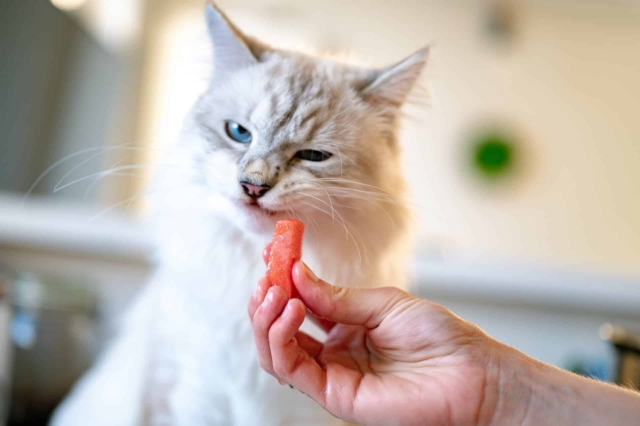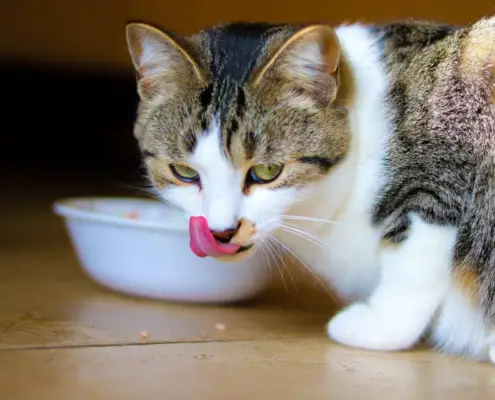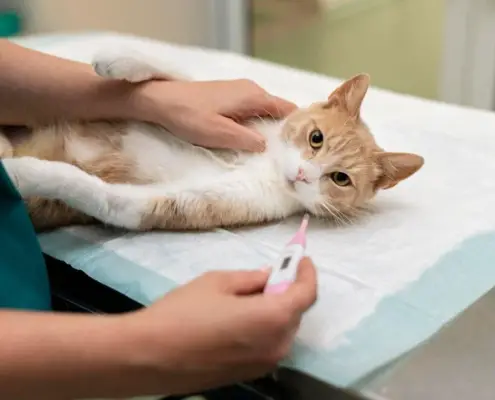
Cats are known for their selective and sometimes finicky eating habits. As responsible pet owners, it is crucial to provide them with a balanced and nutritious diet. While cats are obligate carnivores, meaning their bodies are designed to primarily consume meat, incorporating healthy fruits into their diet can offer numerous benefits. In this article, we will delve into the advantages of feeding cats healthy fruits, discuss the nutritional value of different fruits, explore safe options, and provide guidance on introducing fruits to your feline companion’s diet.
Benefits of Incorporating Fruits into a Cat’s Diet
Feeding your cat healthy fruits can provide a range of benefits for their overall well-being. Firstly, fruits are a great source of vitamins and minerals that are essential for a cat’s health. Fruits such as apples and bananas contain vitamin C, which can boost the immune system and support a cat’s natural defenses against diseases. Additionally, fruits like berries and melons are rich in antioxidants, which can help prevent cell damage and promote healthy aging.
Moreover, incorporating fruits into your cat’s diet can aid in digestion. Many fruits are high in fiber, which can regulate bowel movements and prevent constipation. This is particularly beneficial for cats that struggle with hairballs. Furthermore, the natural enzymes found in fruits can support optimal digestion and nutrient absorption.
Nutritional Value of Different Fruits for Cats
When considering which fruits to incorporate into your cat’s diet, it is essential to understand their nutritional value. While cats have specific dietary requirements, some fruits can provide them with valuable nutrients. Blueberries, for example, are low in calories and high in fiber and antioxidants. They can promote healthy digestion and improve cognitive function in cats.
Apples, another cat-friendly fruit, are rich in vitamins A and C. These vitamins support immune function and contribute to healthy skin and coat. However, it is important to remove the seeds and core of the apple before feeding it to your feline friend, as they can be harmful.
Bananas are a good source of potassium and dietary fiber. They can help regulate blood pressure and promote a healthy heart in cats. Remember to offer small portions of mashed or pureed bananas, as too much can lead to digestive upset.
Safe Fruits for Cats to Eat
While many fruits offer health benefits to cats, it is crucial to be aware of which fruits are safe for them to consume. Some fruits, such as grapes and raisins, can be toxic to cats and should always be avoided. Avocado is another fruit that should not be given to cats, as it contains a substance called persin, which can be toxic to them.
Safe fruits for cats include apples, bananas, blueberries, and watermelon. These fruits are not only safe, but they also provide valuable nutrients. Remember to remove any seeds, pits, or cores and offer the fruits in small, bite-sized pieces to prevent choking hazards.
How to Introduce Fruits to Your Cat’s Diet
Introducing new foods to your cat’s diet requires patience and careful observation. When incorporating fruits, it is recommended to start with small quantities and gradually increase over time. Begin by offering a tiny piece of fruit as a treat and observe your cat’s reaction. If they show interest and tolerate the fruit well, you can gradually increase the portion size.
It is important to note that not all cats will enjoy fruits, and some may have allergies or sensitivities. If your cat shows signs of digestive upset or any adverse reactions, discontinue the fruit and consult with your veterinarian. Remember to always wash fruits thoroughly before offering them to your cat to remove any pesticides or residue that could be harmful.
Precautions and Considerations When Feeding Fruits to Cats
While fruits can offer health benefits to cats, there are some precautions and considerations to keep in mind. Firstly, always offer fruits as a complementary treat and not as a substitute for a balanced cat food diet. Fruits should only make up a small percentage of your cat’s overall calorie intake.
Additionally, some fruits, such as citrus fruits like oranges and lemons, can cause stomach upset in cats. It is best to avoid these acidic fruits to prevent any digestive issues.
Lastly, be mindful of the sugar content in certain fruits. While fruits contain natural sugars, excessive consumption can lead to weight gain and other health issues. Moderation is key when it comes to incorporating fruits into your cat’s diet.
Homemade Fruit Treats for Cats
If you are feeling creative, you can make homemade fruit treats for your cat. One simple recipe involves mashing a ripe banana and mixing it with a small amount of plain yogurt. You can then freeze the mixture in small portions and offer it as a refreshing and healthy treat on hot summer days.
Another homemade fruit treat idea is to puree fresh blueberries and mix them with a small amount of canned pumpkin. This combination provides a boost of antioxidants and fiber. Serve the mixture in small portions or freeze it in ice cube trays for a delightful and nutritious snack.
Commercial Cat Food Options with Fruit Ingredients
If you prefer the convenience of commercial cat food, there are options available that incorporate fruits into their formulas. When selecting a cat food with fruit ingredients, it is important to choose a reputable brand that uses high-quality ingredients and follows proper nutritional guidelines.
Read the ingredient list carefully and ensure that fruits are included in appropriate amounts. Avoid cat foods that have artificial additives, preservatives, or excessive amounts of fillers. Consulting with your veterinarian can help you make an informed decision regarding the best commercial cat food options with fruit ingredients for your feline companion.
Frequently Asked Questions About Feeding Fruits to Cats
- Can cats eat all fruits?While cats can eat many fruits, not all fruits are safe for them. Some fruits, like grapes and raisins, can be toxic to cats and should be avoided. It is important to do thorough research and consult with your veterinarian before introducing any new fruit into your cat’s diet.
- How much fruit should I feed my cat?Fruits should only make up a small portion of your cat’s overall calorie intake. As a guideline, treats should account for no more than 10% of their daily calorie intake. Moderation is key to maintaining a balanced diet for your cat.
- Are there any fruits that cats should never eat?Yes, there are fruits that cats should never eat. Examples include grapes, raisins, and avocados. These fruits can be toxic to cats and should be avoided at all times.
- Can I give my cat fruit every day?While fruits can offer health benefits to cats, they should not be given in excessive amounts. Moderation is essential to prevent weight gain and ensure a balanced diet for your cat.
The Importance of a Balanced Diet for Feline Health
Incorporating healthy fruits into your cat’s diet can provide them with essential vitamins, minerals, and antioxidants. However, it is important to remember that cats are primarily carnivorous animals, and their diet should be based on high-quality cat food that meets their specific nutritional needs. Fruits should only be offered as a complementary treat and in moderation. Always consult with your veterinarian before making any significant changes to your cat’s diet. By providing a balanced and varied diet, you can ensure the optimal health and well-being of your feline companion.
If you enjoyed my article, I would appreciate you sharing it with your network.

Sima Ndlebe
Sima writes for CatBuzz. He is interested in Cats, Health and Fitness, and Entrepreneurship.
Published: 13 October 2023
Related Articles
Disclaimer
The content found on CatBuzz.org is presented on an "as is" basis and is intended for general consumer information and education purposes only. Any utilization of this information is voluntary and solely at the user's own risk.
None of the articles or content should be regarded as, or used in place of, veterinary medical advice, diagnosis, or treatment. The information provided on the website is purely for educational and informational intentions and should not be considered a substitute for professional guidance from a veterinarian or other qualified expert. The articles are designed to inform consumers about veterinary healthcare and medical matters that may impact their cat's daily life. It should be noted that this website and its services do not constitute the practice of any form of veterinary medical advice, diagnosis, or treatment. CatBuzz.org explicitly disclaims any liability for any direct or indirect damages or losses that may arise from the use of or reliance on the information contained within the content.
Consumers must consult a veterinarian, veterinary specialist, or another qualified veterinary healthcare provider when seeking advice regarding their cat's health or medical conditions. It is important not to ignore, avoid, or postpone seeking medical advice from a veterinarian or other qualified veterinary healthcare provider solely based on information obtained from this website. If you believe that your cat may be experiencing a medical issue or condition, it is imperative to promptly contact a qualified veterinary healthcare professional.



